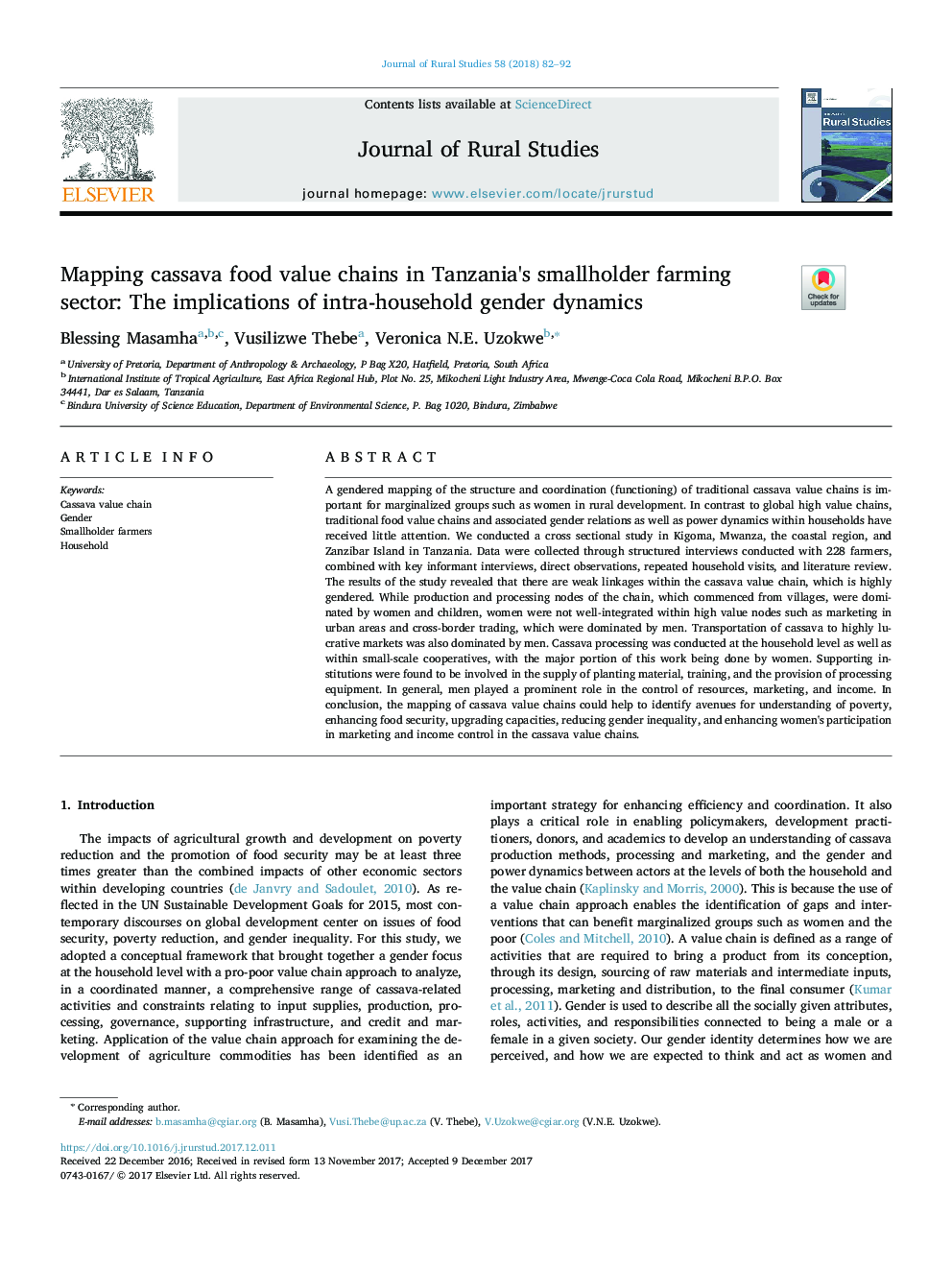| کد مقاله | کد نشریه | سال انتشار | مقاله انگلیسی | نسخه تمام متن |
|---|---|---|---|---|
| 6545335 | 1421773 | 2018 | 11 صفحه PDF | دانلود رایگان |
عنوان انگلیسی مقاله ISI
Mapping cassava food value chains in Tanzania's smallholder farming sector: The implications of intra-household gender dynamics
ترجمه فارسی عنوان
ارزیابی زنجیره ارزش مواد غذایی منسوغ در بخش کشاورزان کوچک تانزانایی: پیامدهای پویایی جنسیت درونی خانوار
دانلود مقاله + سفارش ترجمه
دانلود مقاله ISI انگلیسی
رایگان برای ایرانیان
کلمات کلیدی
زنجیره ارزش کاجاوا، جنسیت، کشاورزان کوچک، لوازم منزل،
موضوعات مرتبط
علوم زیستی و بیوفناوری
علوم کشاورزی و بیولوژیک
جنگلداری
چکیده انگلیسی
A gendered mapping of the structure and coordination (functioning) of traditional cassava value chains is important for marginalized groups such as women in rural development. In contrast to global high value chains, traditional food value chains and associated gender relations as well as power dynamics within households have received little attention. We conducted a cross sectional study in Kigoma, Mwanza, the coastal region, and Zanzibar Island in Tanzania. Data were collected through structured interviews conducted with 228 farmers, combined with key informant interviews, direct observations, repeated household visits, and literature review. The results of the study revealed that there are weak linkages within the cassava value chain, which is highly gendered. While production and processing nodes of the chain, which commenced from villages, were dominated by women and children, women were not well-integrated within high value nodes such as marketing in urban areas and cross-border trading, which were dominated by men. Transportation of cassava to highly lucrative markets was also dominated by men. Cassava processing was conducted at the household level as well as within small-scale cooperatives, with the major portion of this work being done by women. Supporting institutions were found to be involved in the supply of planting material, training, and the provision of processing equipment. In general, men played a prominent role in the control of resources, marketing, and income. In conclusion, the mapping of cassava value chains could help to identify avenues for understanding of poverty, enhancing food security, upgrading capacities, reducing gender inequality, and enhancing women's participation in marketing and income control in the cassava value chains.
ناشر
Database: Elsevier - ScienceDirect (ساینس دایرکت)
Journal: Journal of Rural Studies - Volume 58, February 2018, Pages 82-92
Journal: Journal of Rural Studies - Volume 58, February 2018, Pages 82-92
نویسندگان
Blessing Masamha, Vusilizwe Thebe, Veronica N.E. Uzokwe,
